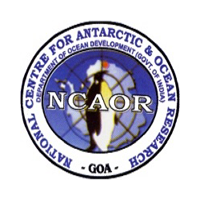About NCAOR, Goa
NCAOR, Goa: A Leading Centre for Polar and Ocean Research
NCAOR, Goa is a premier research institution in India that specializes in polar and ocean research. The National Centre for Polar and Ocean Research (NCPOR) was established on 25th May 1998 as an autonomous research organization under the Ministry of Earth Sciences (MoES), Government of India. The center is located at Vasco-da-Gama, Goa.
The primary objective of NCAOR is to promote scientific research in the polar regions and oceans surrounding India. The center conducts multidisciplinary studies on various aspects of the polar environment such as climate change, oceanography, geology, biology, atmospheric sciences, glaciology etc.
The center has state-of-the-art facilities for conducting cutting-edge research in these areas. It has a team of highly qualified scientists who are experts in their respective fields. They work together to conduct innovative research that contributes to our understanding of the complex processes that govern our planet's climate system.
Research Areas
NCAOR conducts extensive research on various aspects related to polar regions and oceans surrounding India. Some of its key areas include:
1) Climate Change: NCAOR studies the impact of climate change on the Arctic and Antarctic regions. It investigates how changes in temperature affect sea ice cover, ocean currents etc.
2) Oceanography: NCAOR conducts extensive studies on physical oceanography which includes water masses distribution & circulation patterns; chemical oceanography which includes nutrient cycling & biogeochemical cycles; biological oceanography which includes phytoplankton productivity & zooplankton ecology; geological oceanography which includes sedimentation processes & tectonic activities.
3) Geology: NCAOR also focuses on studying geological features such as glaciers formation & dynamics; sedimentary rocks formation process etc.
4) Atmospheric Sciences: NCPOR also carries out atmospheric science-related studies like aerosol chemistry & physics; cloud microphysics etc.
5) Glaciology: Another important area where NCPOR excels is glaciology - it involves studying glaciers' dynamics including mass balance measurements using remote sensing techniques like satellite imagery or ground-based observations like GPS surveys or ice cores drilling methods.
Facilities
NCPOR has world-class facilities for conducting cutting-edge scientific research related to polar regions and oceans surrounding India:
1) Research Vessels - ORV Sagar Kanya (Oceanographic Research Vessel), FORV Sagar Sampada (Fisheries Oceanographic Research Vessel), FORV Sagar Purvi (Fisheries Oceanographic Research Vessel).
2) Ice Core Laboratory - This laboratory houses state-of-the-art equipment used for analyzing ice cores collected from Antarctica or Greenland region during field expeditions conducted by scientists from different countries around the world collaborating with Indian researchers at this facility located near Vasco-da-Gama town within walking distance from airport terminal building itself!
3) Remote Sensing Lab - This lab uses satellite data obtained through remote sensing techniques like RADAR/SAR/Infrared sensors mounted onboard satellites orbiting Earth at different altitudes above sea level providing valuable information about land surface features including snow cover extent over Himalayan region or Arctic/Antarctic sea-ice extent variations over time period ranging from few days up-to several years depending upon mission objectives set by space agencies involved with these missions worldwide collaborating with Indian researchers here at this facility too!
4) Marine Biology Lab - This lab houses equipment used for studying marine organisms' physiology including their behavior patterns under controlled conditions simulating natural environments found within coastal waters around Indian subcontinent region.
Achievements
Over the years since its inception back in 1998 till date i.e., more than two decades now! NCOPR has made significant contributions towards advancing knowledge about our planet's complex systems governing climate change impacts across globe especially those affecting high-latitude regions such as Arctic/Antarctic zones where rapid warming trends have been observed recently due mainly due anthropogenic activities causing greenhouse gas emissions leading global warming phenomenon worldwide!
Some notable achievements include:
1) Discovery Of New Species – Scientists working at NCOPR have discovered new species living deep beneath Antarctic waters during their field expeditions conducted aboard ORV Sagar Kanya vessel equipped with advanced underwater cameras capable capturing images upto depths exceeding 5000 meters below sea level!
2 ) Development Of New Technologies – Researchers here have developed new technologies aimed improving accuracy measuring parameters related physical properties seawater samples collected during cruises carried out aboard RVs mentioned earlier enabling better understanding how changes occurring within marine ecosystems affect overall health status these ecosystems themselves alongwith human populations dependent upon them directly indirectly too!
3 ) International Collaborations – NCOPR collaborates extensively with other international organizations working towards similar goals promoting scientific knowledge sharing among researchers worldwide thereby contributing significantly towards global efforts aimed mitigating adverse effects caused anthropogenic activities leading environmental degradation across globe!
Conclusion
In conclusion,National Centre For Polar And Ocean Research(NCOPR),Goa plays a vital role when it comes to researching about climatic changes happening all around us.Their contribution towards discovering new species,new technologies development,and international collaborations are commendable.NCOPR's facilities are top-notch,and they house some state-of-the-art equipment used by scientists globally.NCOPR will continue playing an essential role when it comes to researching climatic changes happening globally while contributing significantly towards global efforts aimed mitigating adverse effects caused anthropogenic activities leading environmental degradation across globe!

